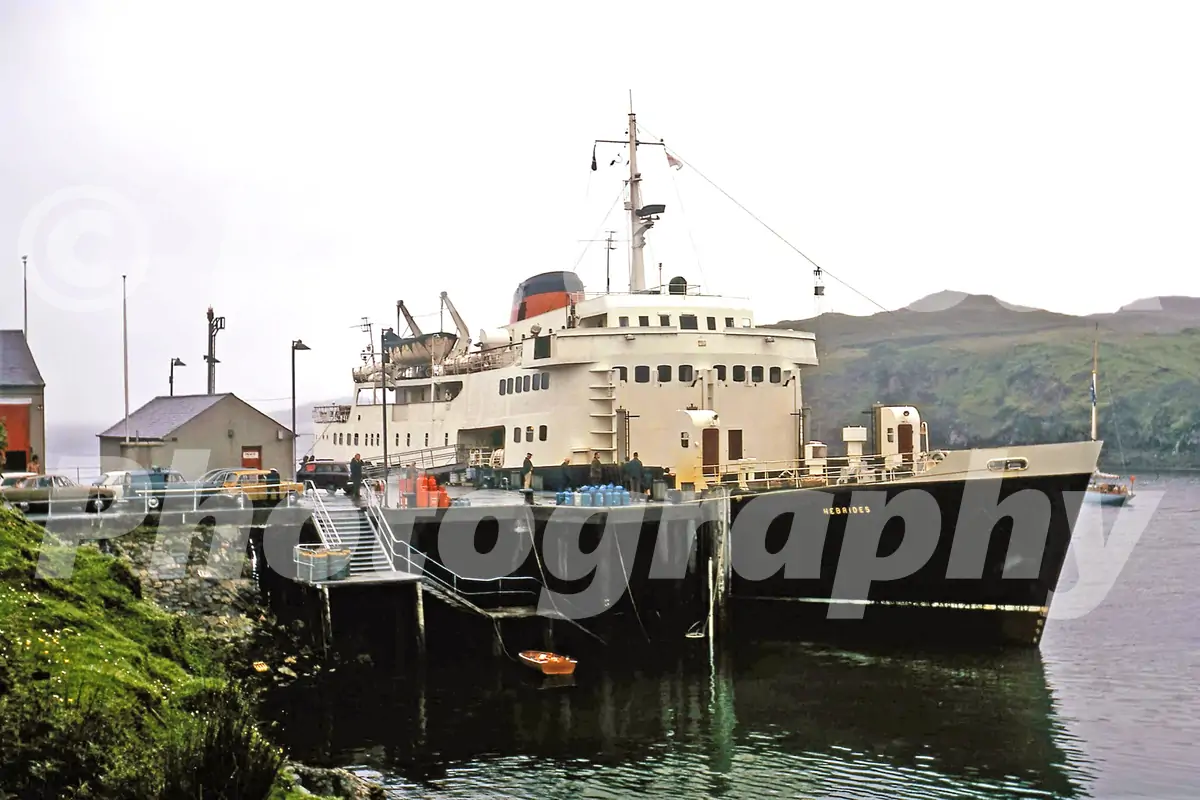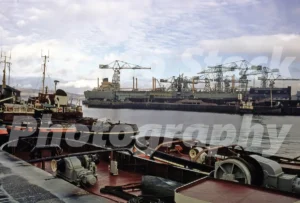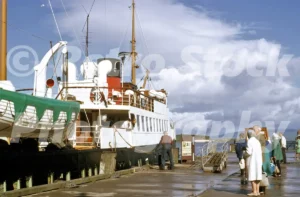The MV Hebrides, launched in November 1963 and entering service in April 1964, holds a proud place in Scottish maritime history as the first car ferry to serve the Western Isles. Commissioned by David MacBrayne Ltd and built by Hall, Russell & Company of Aberdeen, she represented a major leap forward in transport links for island communities, heralding a new era of vehicle travel between the mainland and the Hebrides.
A Revolutionary Design
Measuring approximately 220 feet in length and displacing 2,104 gross tons, the MV Hebrides was powered by twin 8-cylinder diesel engines from Crossley Brothers, giving her a cruising speed of around 14 knots. Designed for versatility and resilience, she could carry up to 600 passengers and approximately 50 vehicles. Remarkably, her construction included watertight bulkheads and reinforced doors?a Cold War-era measure intended to allow her to function as a floating nuclear shelter in a national emergency.
Unlike later drive-through ferries, the MV Hebrides was a hoist-loading vessel. Vehicles were lifted aboard using a side hoist, which required specially adapted piers at ports such as Uig (on Skye), Tarbert (on Harris), and Lochmaddy (on North Uist). This innovative approach enabled vehicles to be transported to the Hebrides for the first time with regularity and efficiency.
The Uig Triangle Years
MV Hebrides began her service on 15 April 1964, operating what became known as the “Uig Triangle”?the essential route connecting Uig on the Isle of Skye with Tarbert and Lochmaddy. She remained a constant presence on this route for over 21 years, ensuring vital connections for freight, passengers, and vehicles in both summer and winter weather.
Her role was transformative. Before her arrival, car owners had to rely on awkward loading methods or leave their vehicles behind. The MV Hebrides provided a dependable and relatively comfortable means of reaching the islands with cars and goods, reshaping island economies and lifestyles.
Life After CalMac
In 1985, the MV Hebrides was retired from Caledonian MacBrayne service, having been replaced by more modern ferries featuring drive-through loading capabilities. Yet her story was far from over.
She was sold in 1986 to Torbay Seaways and renamed Devoniun, offering passenger services between Torquay and the Channel Islands. Later, she operated under various names?including Illyria?in the Adriatic, linking Italy and Albania. In an unusual twist for a former CalMac ferry, she even crossed the Atlantic to serve routes in the Caribbean.
Sadly, her career ended in tragedy. In 1999, while undergoing repairs at Eleusis Bay in Greece, she was severely damaged by fire. She was never returned to service and was scrapped in Turkey in 2003.




